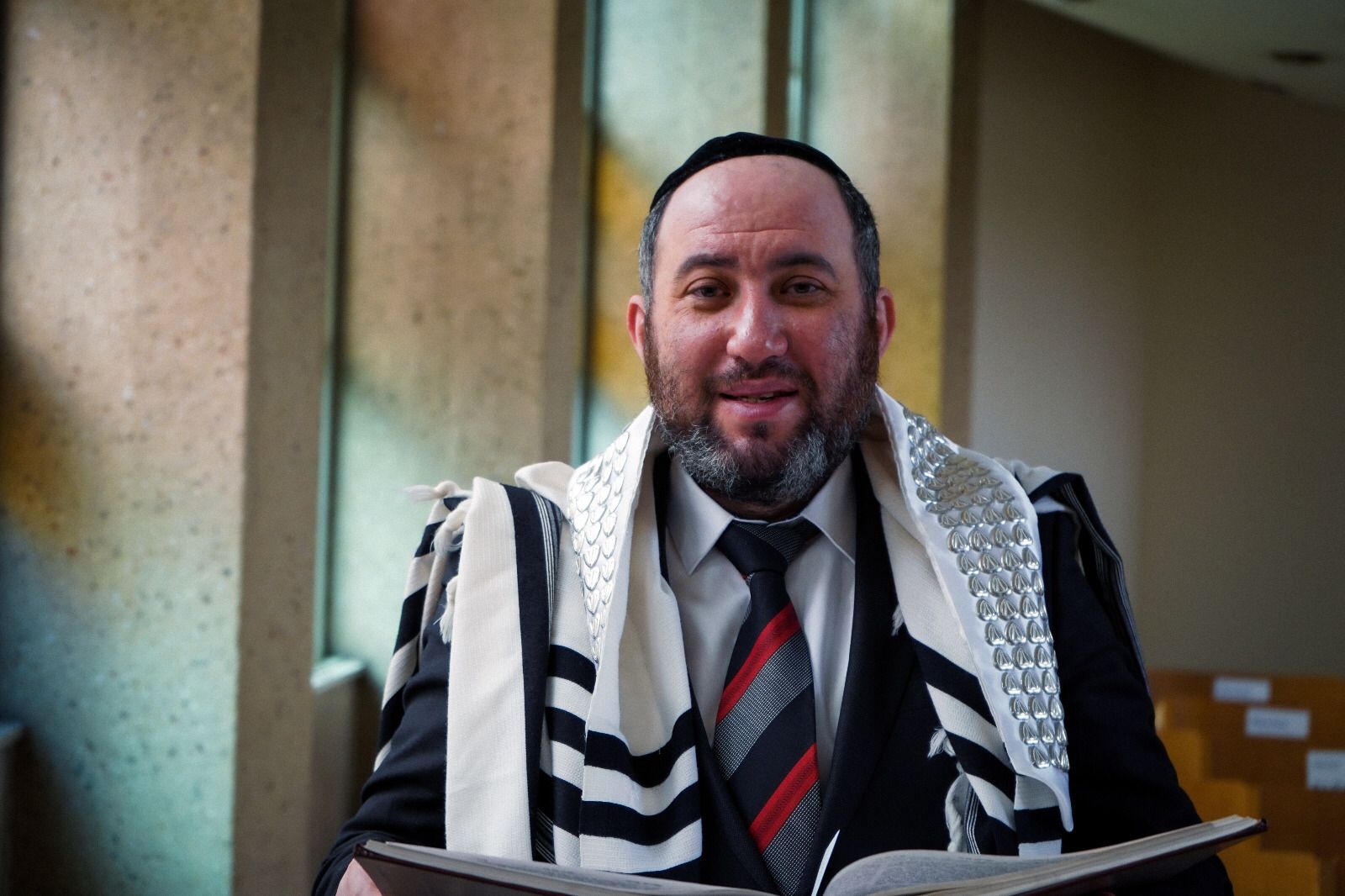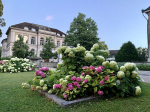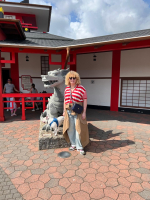
Correspondent: – Dear Rabbi Benzion Kaplan, thank you very much for taking the time to answer our questions. You are one of the most prominent rabbis of modern Europe; both ordinary
members of Jewish communities and religious authorities defer to you. Please tell us a little about yourself: how and where did you spend your childhood and youth, how your personality was formed and how did you switch to observing the Jewish commandments?
Benzion Kaplan: – I was born in the city of Kharkiv in the east of Ukraine. I spent my youth here; I graduated from the Kharkiv Polytechnic Institute and took my first steps as an observant Jew. I got my first rabbinical degree in Israel and then—over 12 years—obtained a lot of diplomas, including from the Dutch-Israeli rabbi Dayan Raphael Evers. He is one of the few who got the highest degree of semikhah, the so-called MRb, in the Netherlands after the Holocaust. In addition to his position as Chief Rabbi of Düsseldorf, he also served in the Beth Din of the ORD in Germany and the European Beth Din. Moreover, he was awarded a place in the Golden Book of Moroccan Judaism. Rabbi Raphael Evers is the author of 30 books in Dutch on the history and practice of Judaism and 8 volumes of Weshav Werafa documenting Halakhic questions he was asked to rule on as Dayan.
Correspondent: – What is your take on Jewish life in Germany in general? What do you like and what could be changed?
Benzion Kaplan: – The history of Jews in Germany is full of many glorious and many tragic pages. Haskalah, also known as Jewish Enlightenment, and the Zionist movement appeared here. Zionism ultimately resulted in the State of Israel. But Germany is also the Holocaust, the genocide of Jews during the Nazi dictatorship. In recent decades, Jewish life has been reviving here thanks to the influx of Jewish immigrants from the former Soviet Union, the so-called contingent refugees. They not always integrate easily; nevertheless, Jewish communities in the country are growing, and new synagogues are opening. To keep developing Jewish life, we need to create numerous projects for this purpose. We would be happy to receive such help from both government agencies and individuals.
Correspondent: – Today, Europe is facing hard times. The new wave of the Omicron-related pandemic is causing negative feelings such as fear and uncertainty about the future. What would you advise the Europeans? Please give some advice that will help them get through this difficult period.
Benzion Kaplan: – Unfortunately, the situation is worsening due to the coronavirus pandemic this year. But trials are a reason to unite and become stronger.
By the way, if you think about it, during the Flood, Noah, along with his household on the ark, found himself in rigid isolation. Moreover, the lockdown lasted—according to the text of the Torah—for a whole year until the water receded. There were only eight of them in the ark: Noah and his three sons with their wives. Eight people, the only survivors, knew that they would never meet anyone else, either from their family or from acquaintances, after the lockdown. Back then, they took the right step and rallied all together, survived the Flood, gave rise to a new world and offered another chance for a new humanity. For our society and direct descendants, it is an illustrative example of how you can survive in an extreme situation. How can we unite? One of our sages Hillel said, “In a place where there is no humanity: be human.” Unfortunately, people who are locked in cramped spaces for a long time and who dream of freedom of movement and inviolable personal space may react irritably during lockdowns, which in turn leads to quarrels, fights or something worse. We must understand that we remain human only by trying to show understanding to other people and treating them respectfully. By strengthening the “bein adam la-chavero” peace between a person and a fellow, we are observing the mitzvah and keeping our society healthy.
Correspondent: – Today, in the modern world of consumerism, spirituality and true moral values are increasingly relegated to the background. What would you like to say about that?
Benzion Kaplan: – Only a developed spiritual life can help resist all of that. We need to work more with people if we want to foster spiritual values. Our position is that of the Torah spirituality. This spirituality is based only on moral behavior and related to the Almighty and other people. We, the Jewish people, are lucky that we have—according to Rabbi Akiva—“Kli Hemda”, a precious vessel, i.e., the Torah, which governs the behavior of each member of our society in compliance with the sacred law, and this is the highest morality. How can we achieve moral behavior in a society that is divided into peoples, religions, political parties and the like? We can say the following: starting from small to large, from our own environment, from our small cell. Thus, we can trigger a chain reaction and gradually change the whole society for the better.
Correspondent: – Today, the issues of family, marriage and harmony in the family are an important aspect of the modern world. Are there any all-purpose tips and rules for those who want to find their soul mate and build the perfect family?
Benzion Kaplan: – Finding your soul mate is not an easy task, not only for people. The Talmud (the treatise by Sotha) says that it is as difficult for the Almighty to unite a married couple, as it is to part the waters of the Yam Suph (Red Sea) that Israelites crossed after leaving Egypt. If you are a person who wants to start a family, then you must, first of all, ask yourself who you are, what lifestyle, values and ideology you personally stick to, what goals you set for yourself and what you strive for. According to these criteria, you must look for a companion/life partner who strives for the same things, as common values and views unite people. Here is a simple example: it would be illogical if a woman, who returned to observing the mitzvah, looked for her betrothed in a non-religious environment and the like. From all of the above, we can see that only together, i.e., having a common goal, we can find mutual understanding in a marriage and at the same time help and support our partners. Indeed, the Torah says that the Almighty created a woman for Adam as “ezer kenegdo” or “helper who opposes him”. This part means that if a man is worthy, then a woman will be his helper in their marriage, and if not worthy, then she will not. This interpretation may just as well be applied to women. The main thing is to build a family based on peace between the spouses, Shalom Bayit, i.e., to ensure shalom (peace) among ourselves, forgetting all of the disputes. Only such self-improvement and supporting your partner can help you build a strong family.
Correspondent: – Currently, the Jewish communities of Europe are actively discussing the Strategy on Combating Anti-Semitism and Fostering Jewish Life until 2030. What do you think about the idea of creating such Strategy and planning such process as fostering Jewish life?
Benzion Kaplan: – I would like to answer this question with a German expression: it is better to act than react. This Strategy is a necessary program, but we must always understand that it requires two parties rather than one. We must find a way to involve the non-Jewish community in this program through dialog or something like that. We must create more educational and informational programs involving the general public. We must introduce them to the Jewish way of life. For example, we can launch a culinary show to introduce them to traditional Jewish foods. By the way, thanks to such programs, we can improve and develop Jewish life itself. All in all, we will achieve a two-directional development.
Correspondent: – Thank you very much for the interesting interview!
Benzion Kaplan: – Thank you!







































